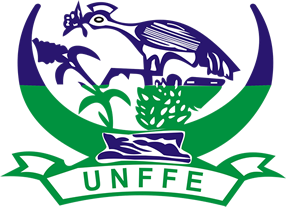Over 120 women and youth farmers from Mukono, Buikwe, Mityana, Kayunga, and Luwero have benefited from a one-day training in good agronomic practices, business planning and contractual farming agreements conducted by Uganda National Farmers Federation (UNFFE). The training sessions which were held at the District Local Government head offices in different districts looked at addressing market access gaps for African Indigenous Vegetables (AIVs) and value-added products where Farmer Producer Associations are mobilized, organized to increase the production of high-value quality AIVs and linked to assured markets. It should be noted that AIVs are considered high-value crops with growing demand across the country and the Eastern African region.
The implementing partners UNFFE in partnership with Uganda Christian University, Farmgain Africa, and Syova Seed (U) Ltd are implementing a two-year project titled Enhancing Inclusive Market Access for AIVs and Value –added products in Uganda (AIRTEA) 2022-2024 funded by the Organization of African, Caribbean, and Pacific States (OACPS), ASARECA, FARA, Eastern Africa Farmers Federation-EAFF and European Union.
The AIRTEA project is looking at positioning the farmer producer associations to increase their production, productivity, and incomes through increasing market opportunities for supply and demand of AIVS seeds and value-added products, improving market access for vegetable production units, and improving services delivery by UNFFE through an inclusive management information system for enhanced market access.
Perez Kawumi the Deputy Chief Executive Officer and Director of Crop Resources Development at UNFFE indicated that most farmers are not practicing farming as a business with little knowledge of what they are farming, where they are farming when they should farm, and which market to target to maximize profit. He noted that farmers do little planning before they get into their gardens and farms which is why the AIRTEA project is looking at strengthening the business farm planning component. Perez also stressed that whereas the government has zeroed down on 18 priority commodities, African Indigenous Vegetables should not be forgotten.
“As UNFFE, we are looking at the neglected AIVs to build strong AIV value chains to enable farmers to increase their incomes. Vegetables like Dodo, Nakati, and Buga have high value in terms of income and in a space of three to four weeks, a farmer will be harvesting. But we are cognizant of getting onboard quality seed companies as well as having good buyers that won’t cheat our farmers.” Perez Kawumi noted.
In his presentation, Bryan Mugaga Training Officer at Syova noted that farmers should change their mindsets towards practicing modern agronomic practices through using certified seeds, fertilizers, and agrochemicals which will give them a better yield at the end of the season. He stressed the need to
Mukotanyi Alex the AIRTEA Project Coordinator at UNFFE indicated that UNFFE, believe that the agricultural sector needs simple practical scientific, and technological innovations focusing on the smallholder farmers to help them create employment opportunities and have sustainable sources of income, food, and nutritional security, especially for youth, and women.
“Inclusive market access for AIVs i.e. pumpkin, eggplant, tomatoes, cucumber is our focus. In this 3-year project, UNFFE’s role is to mobilize farmers, organize them into groups and empower them through training, and providing extension services but also link the farmer groups to quality seed companies and reliable markets. We are targeting 3,000 farmers to be positively affected by this project” Alex noted.
He added that in this particular partnership, Uganda Christian University is specifically carrying out research on improving the AIVs, Syova seed company is providing quality seed and Farmgain Africa will find a reliable market for AIVs. He further explained that this arrangement results in a contractual agreement signed between the farmer groups and the buyers where the contract streamlines the issues of quality, quantities, frequency of supply, and the price of the product. Alex indicated that the AIRTEA is inclusive in its approach where organized women and youth groups are assured of support at all stages of the value chain. He added that this will eventually unlock many opportunities for other agricultural value chains to adopt and upscale this agribusiness initiative.





